With approximately sixteen million people, and a total area of 1,246,700 sq km (481,353 sq mi), Angola became independent from Portugal in 1975.
 |
Since then twenty-seven years of civil war that destroyed most of the country. Peace came to Angola in 2002 and the country is doing a huge effort to recover from Civil War with success.
Angola has an extensive oil and gas resources, diamonds, gold, extensive forest, hydroelectric potential, fisheries and rich agricultural land amongst others sectors.
There were parliamentary elections in 2008 won by the MPLA, the political party of the current President of the Republic José Eduardo dos Santos. Besides, there will be presidential elections in 2009.
ECONOMY
Angola has been the focus of attention of the international community especially the high rates of annual growth of GDP. In 2006, growth was 16%, followed, 2007 where the result was 24%. In the year 2008 the country reached 14% annual growth of its GDP, and by 2009 the World Bank estimates 10-11%, placing Angola in the position of one of the fastest growing economy in the world despite the global crisis.
The government has been able to control inflation as well. In 2003, the Central Bank of Angola held a program for the stabilization of the exchange value of the country's currency, the Kwanza, which used its foreign exchange reserves to buy the national currency out of circulation. This program, together with the strengthening of oil exports, had a catalytic effect on the reduction of inflation, thus was possible to verify a drop of 325% in 2000 to only 11,8% in 2007, and the forecast is that this index will continue to develop in positive direction, essentially due to a better control in money supply and the ex-ante sterilization policy of the fiscal revenues of oil sector.
There is no doubt that the economic stabilization achieved in the last years should be preserved as much as possible. However, the global crisis will not last forever: As the global economy improves, the countries that are better positioned in terms of competitiveness and productive capacity like Angola will reap larger gains.
Angola needs to rebuild the country focusing on its re-industrialization and diversification of the economy in non-oil sectors. In order to accomplish the objectives of transforming the country, Angola should carry on working on these economic sectors:
- Petroleum:
Angola is the largest producer of oil in sub-Saharan Africa and currently extracts 1.9 million barrels per day from its rich and vast offshore reserves. The production represented 56% of the GDP of the country in 2007. The oil production and its supporting activities contributed about 85% of GDP in 2008. The continuity of exploration of the oil reserves offshore, it is making possible to find new reserves with greater ease than the old oil exploration fields are being extinguished. As a result of these frequent discoveries, Angola is in the third position in the world ranking of new discoveries of oil, behind Iran and Saudi Arabia.
In January 2007, Angola formally acceded to the Organization of Petroleum Exporting Countries (OPEC), which emphasized its increasingly important role in the world energy system.
Control of the oil industry is consolidated in Sonangol Group, a conglomerate which is owned by the Angolan government. With revenues booming from oil exports, the government has started to implement ambitious development programs in building roads and other basic infrastructure for the nation.
- Mining:
Diamonds: Angola was the third largest producer of diamonds in the Africa and has only explored 40% of the diamond-rich territory within the country. World's leading geologists estimate that the alluvial reserves of diamonds of Angola alluvial can totalize 130 million carats, which worth billions of dollars. Endiama, the national diamond company of Angola, expects production to increase by 10 million carats annually.
With substantial deposits of gold, iron, phosphates, manganese, copper, lead, quartz, gypsum, marble, black granite, beryl, zinc and many strategic minerals, Angola has been described as one of the greatest treasures among the world's developing countries.
- Infrastructures:
Roads, bridges and other kind of infrastructures are necessary to unify the country by land. In 2005, the government started using a $2 billion line of credit from China to rebuild Angola's public infrastructure, and several large-scale projects were completed .The government plans to build one million houses in the next years as well.
In 2010 the Africa Cup of Nations will be held in Angola. The Local Organising Committee of the African Football Championship (Cocan) claims this will improve infra-structures all over the country, is going to create thousands of jobs and will show the leadership of Angola to the world. The fastest-growing country in Africa will be united by football.
- Agriculture:
Agriculture
represents 85% of the labour force but only 10% of the GDP. In the last
decade of the colonial period, Angola was a major African food exporter
but now imports almost all its food. Because of severe wartime
conditions, including extensive planting of landmines throughout the
countryside, agricultural activities are currently recovering. Road
building is essential to help the small farmers distribute the excess
and create food markets. Machinery such as tractors is the next step to
modernize and turn into intensive agriculture country.
These are the main agriculture products: bananas, sugarcane, coffee,
sisal, corn, cotton, manioc (tapioca), tobacco, vegetables, plantains;
livestock; forest products; fish.
USA-ANGOLA RELATIONS
In the period of 2002 to 2006, exports of Angola to the United States increased by 375% and imports increased 415%. With 38% of total exports directed to the United States, and 15% of importations in the year 2008, the USA has become the main trading partner of Angola today.
Nearly all of Angola's oil goes to the United States, making it the eighth largest supplier of oil to the United States. U.S. companies account for more than half the investment in Angola, with Chevron-Texaco leading the way. The U.S. Government has invested USD $4 billion in Angola's petroleum sector, becoming the third-largest trading partner of the United States in Sub-Saharan Africa.
The U.S. exports industrial goods and services, primarily oilfield equipment, mining equipment, chemicals, aircraft, and food, to Angola, while principally importing petroleum.
PRIVATE FOREIGN INVESTMENTS
The government conducted a responsible job, with the clear goal of achieving market opening of Angola to the receipt of private foreign investments.
Through the "Basic Law of the Private Investment No. 11/03 of 01 April 2003" its possible to affirm that there is a legal structure that through various programs of incentives encourages the attraction of foreign capital in the country. The government prioritized some sectors to receive these incentives: agriculture, fishing, processing industry, construction, health, education, infrastructure (road, rail, port and airport), telecommunications, energy, water and heavy equipment.
The system of incentives for private foreign investment was divided into zones (A, B and C), according to the needs of each locality, and how they were affected by the war. In the first phase, it is possible exemption from customs tariffs, taxes and industrial capital gain rates. Where possible, in the second phase receive extra incentives through bonuses, such as exemption from industrial taxes for a period greater than 10 years and spending investments be considered costs for the company.
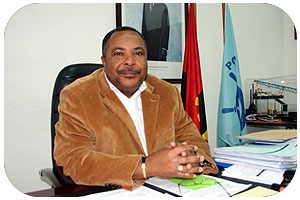 Lobo NascimentoDirector GeralPorto de Cabinda Lobo NascimentoDirector GeralPorto de Cabinda |  Alexandre VeríssimoSócio-GerenteShow Car, Lda Alexandre VeríssimoSócio-GerenteShow Car, Lda | 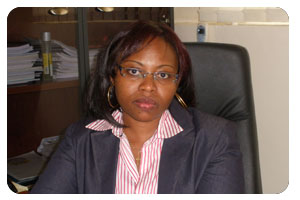 Nama da Conceição Nacimento CabralSócia e Representante Técnica de ContasEBAR Nama da Conceição Nacimento CabralSócia e Representante Técnica de ContasEBAR | 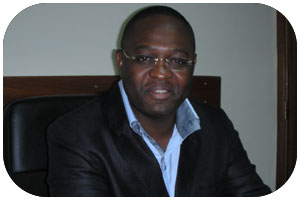 Virgílio BeloGeneral ManagerBelo Empreendimento Virgílio BeloGeneral ManagerBelo Empreendimento |
 Tomas dos AnjosDirector Comercial e coordenador de Vendas Rojotefel Comércio Geral, Impor. e Expor. Lda Tomas dos AnjosDirector Comercial e coordenador de Vendas Rojotefel Comércio Geral, Impor. e Expor. Lda | 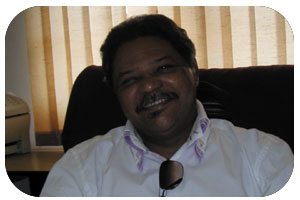 Luís SaraivaDirector GeralSerTranave (Angola) Lda Luís SaraivaDirector GeralSerTranave (Angola) Lda | 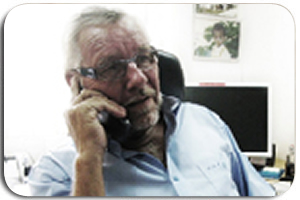 Mr. Knut AndersonCEODesco Angola Lda Mr. Knut AndersonCEODesco Angola Lda |  Mr. Muhammad IsmailChairmanAisha Trading Mr. Muhammad IsmailChairmanAisha Trading |
 Mr. Daniel FerrazMDTecnol Mr. Daniel FerrazMDTecnol |  Mr. Boaventura CardosoMinisterMinistério da Cultura Mr. Boaventura CardosoMinisterMinistério da Cultura |
 TecnolInformation Technology TecnolInformation Technology |  Desco Angola LdaTrade - Import/Export Desco Angola LdaTrade - Import/Export |  Aisha Trading LdaTrade - Import/Export Aisha Trading LdaTrade - Import/Export |  Rojotefel Comércio Geral, Impor. e Expor. LdaTrade - Import/Export Rojotefel Comércio Geral, Impor. e Expor. LdaTrade - Import/Export |
 Ervanária FerreiraTrade - Import/Export Ervanária FerreiraTrade - Import/Export |  Criacom Comunicação e Imagem LdaServices Criacom Comunicação e Imagem LdaServices |  Gestcall –Gestão & Serviços de AtendimentoServices Gestcall –Gestão & Serviços de AtendimentoServices |  Ebar Comércio e Indústria LdaServices Ebar Comércio e Indústria LdaServices |
 Fazenda dos Mangais, SARL aTourism Fazenda dos Mangais, SARL aTourism |  Show Car, Lda.Tourism Show Car, Lda.Tourism |  Intelser Instalações Eléctricas LdaEnergy Intelser Instalações Eléctricas LdaEnergy |  SerTranave (Angola) LdaTransport SerTranave (Angola) LdaTransport |
 TELECTRINF – Telecomunicações e Electricidade, Lda.Telecommunications TELECTRINF – Telecomunicações e Electricidade, Lda.Telecommunications |  Universidade Agostinho NetoEducation Universidade Agostinho NetoEducation |  Belo Empreendimentos, LdaReal Estate Belo Empreendimentos, LdaReal Estate |